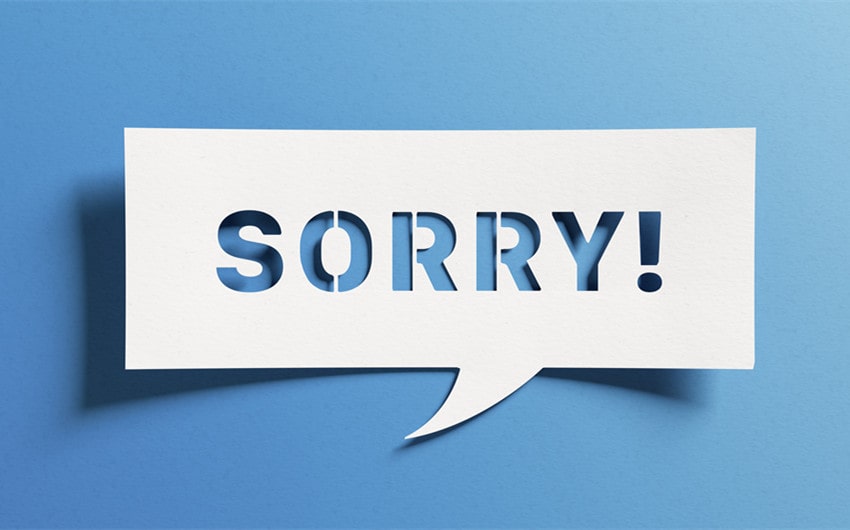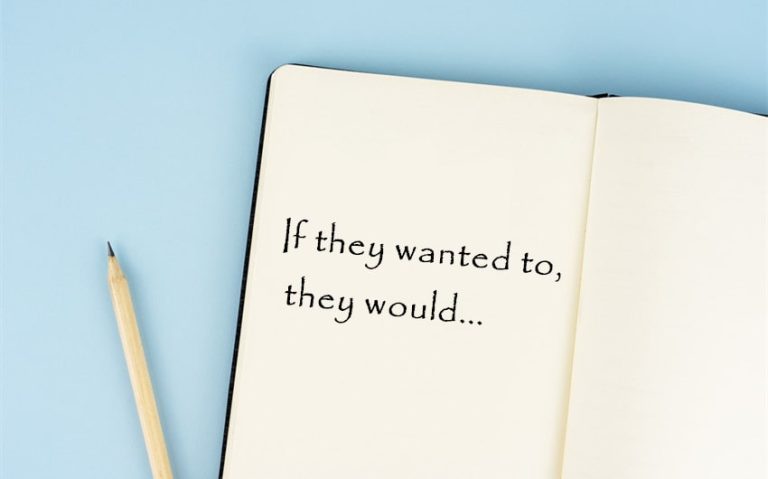75 Apology Paragraphs for Every Situation You Encounter
We all make mistakes, and when we do, a sincere apology can go a long way in repairing relationships and rebuilding trust. Whether it’s a friend, family member, partner, or colleague, expressing regret in the right way shows maturity and care. Crafting thoughtful apology paragraphs can help convey your feelings and demonstrate accountability.
A well-written apology can mend misunderstandings, ease tensions, and pave the way for healing. If you’re unsure how to say “I’m sorry” effectively, this guide will provide heartfelt examples and tips to help you make amends and strengthen your connections.
Elements of an Effective Apology
A sincere apology involves more than just saying “I’m sorry.” It requires understanding the impact of your actions, taking responsibility, and showing a genuine effort to make things right. Here are the four key elements that make an apology effective:
1. Acknowledgment of Wrongdoing
Acknowledging what you did wrong is the first step in crafting a meaningful apology. This shows that you understand the specific actions or words that caused hurt or harm. Avoid vague statements like “I’m sorry for whatever I did” and instead, be precise. For example:
- “I realize that forgetting your birthday hurt your feelings.”
This clarity reassures the other person that you are aware of your mistake and are not trying to minimize their feelings.
2. Expression of Regret
Expressing regret goes beyond admitting wrongdoing—it’s about showing genuine remorse for the pain or inconvenience caused. Use heartfelt language that conveys your sincerity. Simple phrases like “I deeply regret my actions” or “I am truly sorry for the hurt I caused” can go a long way. The goal here is to make the person feel that you understand their emotions and truly care about how your actions affected them.
3. Commitment to Change
An effective apology includes a commitment to change your behavior to prevent repeating the mistake. This step demonstrates accountability and your willingness to grow from the situation. For instance:
- “I will make sure to communicate better in the future so this doesn’t happen again.”
Offering specific actions or steps you’ll take to improve shows that you’re serious about making amends and fostering a better relationship moving forward.
4. Request for Forgiveness
Asking for forgiveness is a humble way to acknowledge the other person’s feelings and offer them the space to heal at their own pace. It’s important to ask for forgiveness without pressuring them, as this step is about inviting reconciliation rather than demanding it. For example:
- “I hope you can forgive me when you’re ready.”
This shows respect for their emotions and gives them the time they need to process your apology.
Apology Paragraphs for Specific Situations
To a Friend
Friendships are precious, but misunderstandings and mistakes can sometimes strain even the closest bonds. Apologizing to a friend is an important way to show you value the relationship and regret any hurt you’ve caused. A heartfelt apology can rebuild trust and strengthen your connection, proving that your friendship means more than any disagreement or lapse in judgment.
1. “I know I’ve hurt you, and for that, I am truly sorry. I let my emotions get the better of me and said things I didn’t mean. You’ve always been such a supportive and understanding friend, and I hate that I took that for granted. Please know that I value our friendship deeply, and I will do whatever it takes to make things right.”
2. “I feel terrible about how I treated you during our last conversation. I wasn’t being fair, and I know my words were hurtful. You are one of the most important people in my life, and I hate that I caused you pain. I hope you can forgive me and let me make amends.”
3. “I regret not being there for you when you needed me most. You’ve always stood by my side, and I failed to do the same for you. I’m sorry for letting you down and want you to know that I’ll be better moving forward.”
4. “I’ve been thinking about what happened, and I realize how wrong I was. I didn’t consider your feelings, and that was selfish of me. You mean so much to me, and I’m truly sorry for my actions.”
5. “I’m sorry for the way I handled things between us. I should have been more understanding and patient. You deserve better from me, and I’m committed to being a better friend to you.”
6. “I know I’ve been distant lately, and I’m sorry for making you feel neglected. Life got the better of me, but that’s no excuse. I value our friendship so much and hope you’ll give me the chance to make things right.”
7. “I shouldn’t have spoken to you the way I did, and I deeply regret it. You’ve always been kind and patient with me, and I failed to show you the same respect. Please forgive me for my behavior.”
8. “I know I let you down by breaking my promise, and I’m so sorry for that. Your trust means everything to me, and I hate that I jeopardized it. I hope I can earn back your faith in me.”
9. “I acted selfishly, and I regret how my actions affected you. You’ve been such an amazing friend, and I’m sorry for not being the friend you deserved in that moment.”
10. “I can’t stop thinking about how my words hurt you. I never meant to make you feel this way, and I’m truly sorry. Please let me know how I can make amends.”
11. “You’ve always been there for me, and I feel awful for not returning the favor. I’m sorry for letting you down and want to do whatever I can to make it up to you.”
12. “I didn’t mean to upset you, but I know I did, and for that, I am truly sorry. You are one of the most important people in my life, and I’ll do better moving forward.”
13. “I regret the way I acted during our disagreement. I should have listened to you instead of being defensive. Please forgive me for my mistake.”
14. “I know I hurt you with my actions, and I hate that I made you feel this way. Please accept my sincere apology and know that I value our friendship deeply.”
15. “I’m sorry for how thoughtless I was. You’ve always been so understanding and patient with me, and I regret not showing you the same respect. I hope we can work through this.”
To a Partner
In a relationship, mistakes can hurt, but a sincere apology can heal wounds and restore trust. Saying sorry to your partner shows that you value their feelings and are committed to growth in your relationship. A thoughtful apology demonstrates your willingness to take responsibility and work through challenges together with love and understanding.
1. “I want to sincerely apologize for the way I acted. I know I hurt you, and it pains me to think that my actions caused you so much pain. You are my everything, and I promise to work on being better for you and our relationship.”
2. “I’m deeply sorry for letting my frustrations take over. You deserve love and kindness, and I failed to show you that. Please know how much I regret my actions and how committed I am to making it right.”
3. “I know I hurt you, and that breaks my heart. I didn’t mean to make you feel unappreciated, and I’m truly sorry. You mean the world to me, and I will do whatever it takes to rebuild your trust.”
4. “I regret how I handled things between us. You’ve always been patient and loving with me, and I failed to show you the same care. I hope you’ll forgive me and let me prove how much I love you.”
5. “I hate that my actions caused you pain. You’ve always been my rock, and I feel like I let you down. I’m truly sorry for my behavior and promise to be better moving forward.”
6. “I wasn’t fair to you during our argument, and I deeply regret it. You mean so much to me, and I hate that I hurt you. Please forgive me for my mistake.”
7. “I’ve been reflecting on my behavior, and I realize how wrong I was. You deserve better, and I’m determined to show you how much I value and love you.”
8. “I’m sorry for not being more understanding. I let my emotions get the better of me, and that wasn’t fair to you. Please know how much I regret my actions.”
9. “I acted out of frustration, and I hate that it hurt you. You’re the most important person in my life, and I will work to make things right.”
10. “I know I failed to communicate effectively, and I regret how it affected you. I love you so much and am sorry for making you feel anything less than cherished.”
11. “I made a mistake, and I regret it deeply. You mean everything to me, and I hate that I jeopardized our relationship. Please let me make it up to you.”
12. “I wasn’t considerate of your feelings, and for that, I’m truly sorry. I promise to learn from this and be a better partner to you.”
13. “I acted selfishly, and I regret not thinking about how my actions would affect you. I love you more than words can say and am committed to making things right.”
14. “I let you down, and I hate that I caused you pain. Please forgive me for my actions, and let’s work together to move forward.”
15. “You’ve always been there for me, and I feel awful for not showing you the same support. I’m sorry for my mistake and hope we can rebuild what I’ve damaged.”
To a Family Member
Family relationships are built on love, but they aren’t immune to conflicts and misunderstandings. Offering a genuine apology to a family member can mend strained bonds and reinforce the importance of your connection. Acknowledging your mistakes shows that you care deeply about preserving the love and harmony within your family.
1. “Family is everything to me, and I hate that my actions hurt you. I want to sincerely apologize for my behavior and let you know how much I value our relationship.”
2. “I regret how I acted during our disagreement. You’ve always been there for me, and I failed to show you the same love and respect. I’m truly sorry for my mistake.”
3. “I’m sorry for the hurt I caused you. You’ve always been my source of strength, and I feel terrible for letting you down. Please know how much I love you.”
4. “I want to apologize for my actions. I know they hurt you, and that was never my intention. I value our bond deeply and will do whatever it takes to make things right.”
5. “I’ve been reflecting on our argument and realize how wrong I was. I acted selfishly, and I’m truly sorry for the pain I caused you.”
6. “You’ve always been my biggest supporter, and I hate that I let you down. I’m sorry for my behavior and will work on being a better family member to you.”
7. “I know my words were hurtful, and I regret saying them. You mean so much to me, and I hope you’ll forgive me for my mistake.”
8. “I acted thoughtlessly, and I realize now how much I hurt you. I want to apologize sincerely and work on rebuilding our relationship.”
9. “I’m sorry for the way I behaved. You’ve always treated me with love and kindness, and I failed to return that respect. I’ll do better moving forward.”
10. “I let my emotions take over, and that wasn’t fair to you. Please accept my apology and know how much I value you.”
11. “I regret the way I acted and how it affected you. Family is so important to me, and I hate that I jeopardized our bond.”
12. “You’ve always been a source of love and wisdom, and I feel awful for not showing you the same respect. I’m truly sorry for my actions.”
13. “I wasn’t fair to you, and I deeply regret it. You mean the world to me, and I hope we can move past this together.”
14. “I know I caused you pain, and I hate that I hurt you. Please forgive me for my mistake and know how much I love you.”
15. “I’m sorry for not being more considerate of your feelings. You’ve always been there for me, and I want to make things right between us.”
To a Colleague or Boss
In the workplace, accountability and professionalism are key. When a mistake affects your colleague or boss, a well-thought-out apology can repair the working relationship and show your commitment to improvement. Taking responsibility demonstrates maturity and a desire to maintain a respectful and productive environment.
1. “I want to sincerely apologize for missing the deadline on the recent project. I understand how my delay impacted the team’s progress, and I take full responsibility for my actions. Moving forward, I will ensure better time management and communication to avoid such situations. Please accept my apology and know that I am committed to doing better.”
2. “I deeply regret the error I made in the report. I realize how it caused confusion and extra work for the team, and I take full accountability. I’ve already reviewed the mistake and implemented measures to prevent it from happening again. I am truly sorry and appreciate your understanding.”
3. “I apologize for my tone during the meeting earlier. It was unprofessional, and I realize now that my frustration was misplaced. I value the collaborative environment of our team and will work on maintaining a respectful and constructive approach in the future.”
4. “I’m sorry for not communicating effectively regarding the project timeline. I understand that my lack of updates may have caused inconvenience, and I regret not being more proactive. I’ll ensure regular updates moving forward to avoid any misunderstandings.”
5. “I want to apologize for the oversight in my work that led to the delay. It was my responsibility to catch that error, and I failed to do so. I’ve taken steps to double-check my work and ensure higher accuracy in the future.”
6. “I regret my mistake during the presentation. I understand it affected our team’s credibility, and I’m truly sorry for letting you down. I will make sure to be better prepared next time and rebuild your trust in my work.”
7. “I apologize for being late to the meeting. I understand the importance of being punctual and how my tardiness may have disrupted the schedule. I’ll be more mindful of my time management moving forward.”
8. “I take full responsibility for the delay in delivering the task. I understand how this impacted the overall project timeline and regret not communicating sooner. I’ve already reorganized my workflow to ensure timely submissions moving forward.”
9. “I’m sorry for the misunderstanding that occurred during the discussion earlier. I realize my choice of words may have caused confusion, and I’ll work on being clearer in my communication moving forward.”
10. “I regret the mistake I made in the spreadsheet. I’ve since reviewed the entire document and corrected the error. Please know that I’m taking steps to ensure this doesn’t happen again.”
11. “I want to apologize for missing the team’s expectations on the recent task. I’ve reflected on the feedback and am committed to improving my skills to ensure I contribute more effectively in the future.”
12. “I’m sorry for forgetting to send the file you requested. I understand it was an important task, and I’ve set reminders to ensure I don’t miss deadlines in the future.”
13. “I apologize for the way I handled the situation earlier. It was unprofessional of me, and I regret not taking the time to approach it more thoughtfully. I appreciate your patience and will do better moving forward.”
14. “I regret the miscommunication on my part that led to the scheduling conflict. I’ll be more diligent in confirming details to ensure this doesn’t happen again. Please accept my sincere apology.”
15. “I want to apologize for the inconvenience my mistake caused the team. I understand the added stress it brought, and I’ve already taken steps to ensure better accuracy in my work moving forward. I hope to rebuild your confidence in my contributions.”
To a Stranger or Acquaintance
Apologizing to a stranger or acquaintance may seem minor, but it reflects courtesy and respect. Whether it’s for a misunderstanding or a small mishap, a polite apology can leave a positive impression and resolve tensions. It’s a simple yet powerful way to show consideration for others, even in brief interactions.
1. “I want to sincerely apologize for my behavior earlier. It was unintentional, but I understand how my actions may have caused inconvenience to you. Please know that I regret the situation and appreciate your understanding.”
2. “I’m sorry for taking up so much of your time earlier. I realize now that I may have caused some inconvenience and want to thank you for your patience.”
3. “I regret bumping into you earlier. I wasn’t paying enough attention, and I want to apologize for the disruption it caused. I hope you’re okay.”
4. “I want to apologize for speaking out of turn during our interaction. I didn’t mean to be rude, and I appreciate your understanding in the matter.”
5. “I’m sorry for not following up on our conversation sooner. I understand it may have caused confusion, and I appreciate your patience as I work to clarify things.”
6. “I regret the misunderstanding earlier. I didn’t mean to cause any trouble, and I hope we can resolve things smoothly. Please accept my apology.”
7. “I apologize for the noise I caused earlier. I didn’t realize it was disruptive, and I’ll make sure to be more mindful in the future.”
8. “I want to sincerely apologize for the mix-up with your order. It wasn’t intentional, and I’ll do everything I can to make it right.”
9. “I’m sorry for cutting ahead of you in line. I didn’t notice, and I feel terrible for being inconsiderate. Please accept my apology.”
10. “I apologize for raising my voice during our interaction. I was frustrated, but that doesn’t excuse my behavior. Thank you for your understanding.”
11. “I regret the delay I caused earlier. I understand how valuable your time is and want to apologize for the inconvenience.”
12. “I’m sorry for not providing clear directions earlier. I realize it might have caused confusion, and I appreciate your patience while I clarify things.”
13. “I want to apologize for accidentally stepping on your foot earlier. It was completely unintentional, and I feel awful for not being more careful.”
14. “I apologize for the oversight during our conversation. I missed an important detail, and I hope to correct it promptly. Thank you for your understanding.”
15. “I regret the interruption I caused earlier. It wasn’t my intention, and I hope it didn’t disrupt your day too much. Please accept my sincere apology.”










